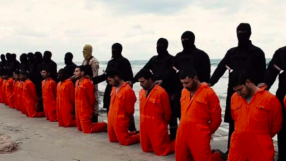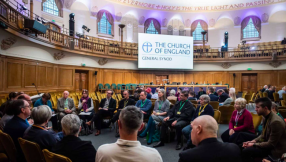Western powers pressure Iran over nuclear programme
France, also reacting to the report on Iran issued on Monday by the U.N. nuclear watchdog, the International Atomic Energy Agency, gave cautious backing to the U.S. position.
The report suggested that there were "signs of a possible military dimension" to Iran's nuclear programme, French Foreign Ministry spokeswoman Pascale Andreani told a news briefing.
The IAEA report said Iran's alleged research into nuclear warheads remained a matter of serious concern and Tehran should provide more information on its missile-related activities.
The IAEA also said Tehran was holding back information on high-explosives testing relating to its nuclear programme.
Iran's envoy to the agency, Ali Asghar Soltanieh, said the report showed Tehran's nuclear programme was peaceful.
"Once again it has been explicitly underlined that there has been absolutely no evidence regarding the diversion of Iran's nuclear activities or materials toward military purposes," the semi-official Fars News Agency quoted him as saying.
Iran, the fourth-largest oil exporter, says its nuclear programme is aimed solely at generating electricity and rejects Western assertions that it is secretly pursuing nuclear weapons.
The five permanent U.N. Security Council members plus Germany are offering Iran a package of incentives to give up its uranium enrichment, so far without success.
"Here, open questions remain, where we have to push for an answer with more time pressure," German Foreign Minister Frank-Walter Steinmeier told members of NATO's parliamentary assembly meeting in Berlin, referring to the IAEA report.
White House spokeswoman Dana Perino said the United States "remains concerned" about Tehran's attitude.
"By failing to cooperate fully and transparently with the IAEA on these matters, we can only conclude it wants to preserve the ability to weaponise," she told reporters aboard Air Force One as President George W. Bush flew to a fundraiser.
"This report apparently demonstrates that Iran has not met its international obligations and continues to violate at least the commitments that it committed to."
SECURITY COUNCIL PRESSURE
Germany's Steinmeier said the ball was in Iran's court.
"Either it is picked up there, and we're getting reasonable answers to our questions, or the entry into talks with the aim of a diplomatic solution to the conflict is further delayed."
"The alternative would then be an increase of international pressure, also through the U.N. Security Council."
The IAEA has been pressing Tehran for answers since Western intelligence said Iran had covertly studied how to design atomic bombs. Iran has dismissed the intelligence as baseless.
Iran has been the subject of three United Nations sanctions resolutions since 2006, all demanding that it cease its nuclear enrichment activities, which it has refused to do.
"Over the past three months, we have worked on a renewed offer programme by the international community, which has been put together and which will probably be handed over to Iran during the first half of June," Steinmeier said.
European Union foreign policy chief Javier Solana, who is expected to deliver the updated offer, said on Monday he hoped to go to Iran in the next month to discuss the nuclear issue.













